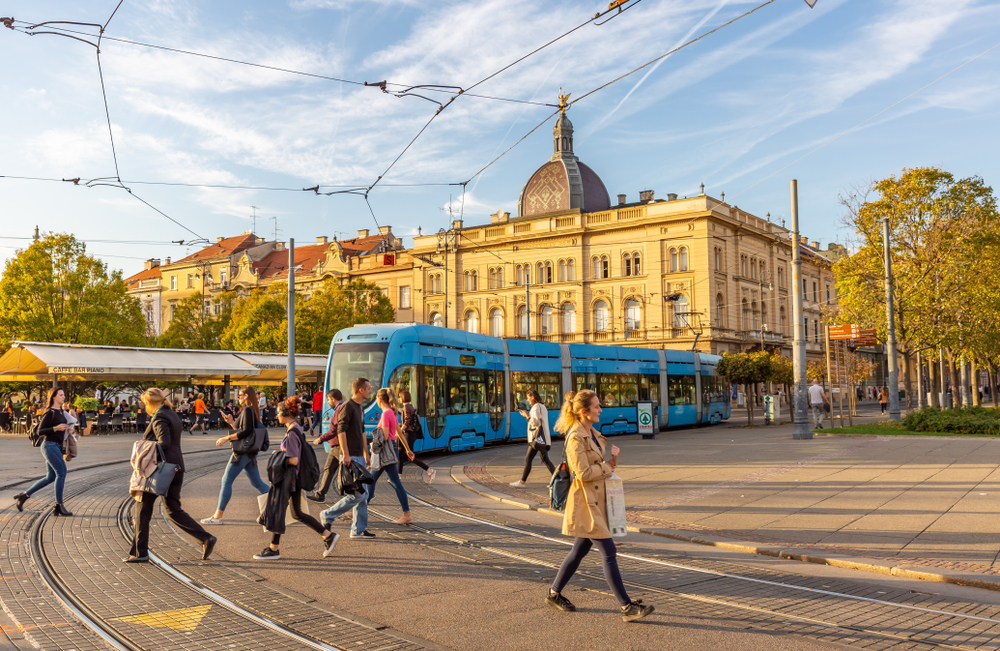Croatia signs the partnership for EU cohesion policies
The most recent member country of the European Union is preparing to receive funds from European cohesion policies 2021-2027, for investments in social policy, territorial cohesion, ecological transition, and the renewal of the railway network

Croatia-signs-the-partnership-for-EU-cohesion-policies
Downtown Zagreb - © Finn stock/Shutterstock
It took three drafts and two revisions of operational programmes by Zagreb – and the initial hopes for 14.4 billion Euros materialised into 9 billion Euros in investment funds – but Croatia can now finally count on a significant injection of resources for the launch of new programmes for European cohesion and its digital and ecological transition.
Croatia, which had sent its first draft programmes to the Commission in June 2021, now plans to follow the path of previous funding from the 2014-2020 period, which led the Balkan country – which joined the European Union in 2013 – to important investments for economic and social development, including the construction of the Peljesac bridge. On the other hand, cohesion funds make up significant figures for the Croatian economy. EU Commissioner for Cohesion and Reform Elisa Ferreira also highlighted: "Since Croatia’s accession to the European Union, cohesion policies have invested the equivalent of 4% of the Croatian GDP in the development of the country".
In this new financial plan, the European Commission will contribute 85% of the funding of the planned projects, which will be divided by areas. The programmes that will receive the most conspicuous figures are those dedicated to the ecological transition: 2.56 billion Euros will be allocated to green policies such as improving the country’s energy efficiency, increasing the use of renewable energies – with the objective of 60% of energy from renewable sources for 2030 – improving the circular economy, climate resilience, and biodiversity.
This will be followed by the European Regional and Development Fund (ERDF) and the European Social Fund Plus (ESF+) which together will make available almost 2.5 billion Euros to improve the quality of employment, skills, education, healthcare, and social services in Croatia with particular regard to the most sensitive categories, such as women, young people, and vulnerable groups. The ERDF will add another 1.7 billion Euros for greater competitiveness, internationalisation, and digitisation of the country’s small and medium-sized enterprises.
Other grants include one billion for mobility; in particular, this sector includes important improvements for the country’s railway network, one of the priority objectives for Zagreb. Other actions will target the development of the poorest regions, which will be allocated half a billion. The European Maritime, Fisheries and Aquaculture Fund will provide 244 million Euros for sustainable fishing and aquaculture, ecosystem protection, biodiversity, and fishing communities. Finally, the Just Transition Fund (JTF) will allow the use of 179 million Euros to mitigate the possible negative effects on the economy and employment due to the ecological transition.
This content is published in the context of the “Work4Future” project co-financed by the European Union (EU). The EU is in no way responsible for the information or views expressed within the framework of the project. The responsibility for the contents lies solely with OBC Transeuropa. Go to the “Work4Future“
Tag: Work for Future



